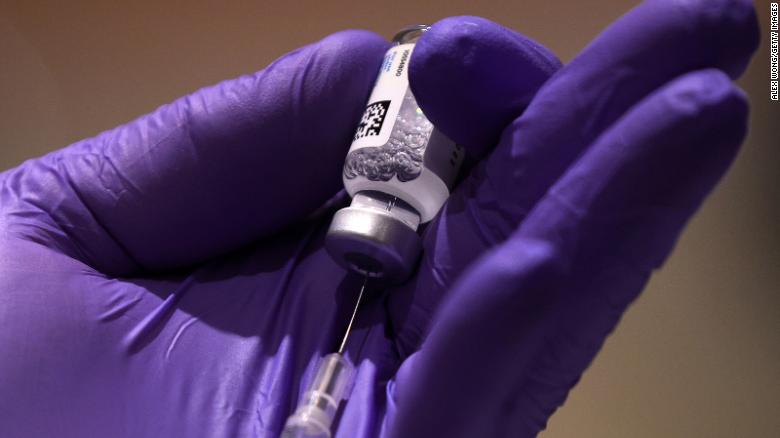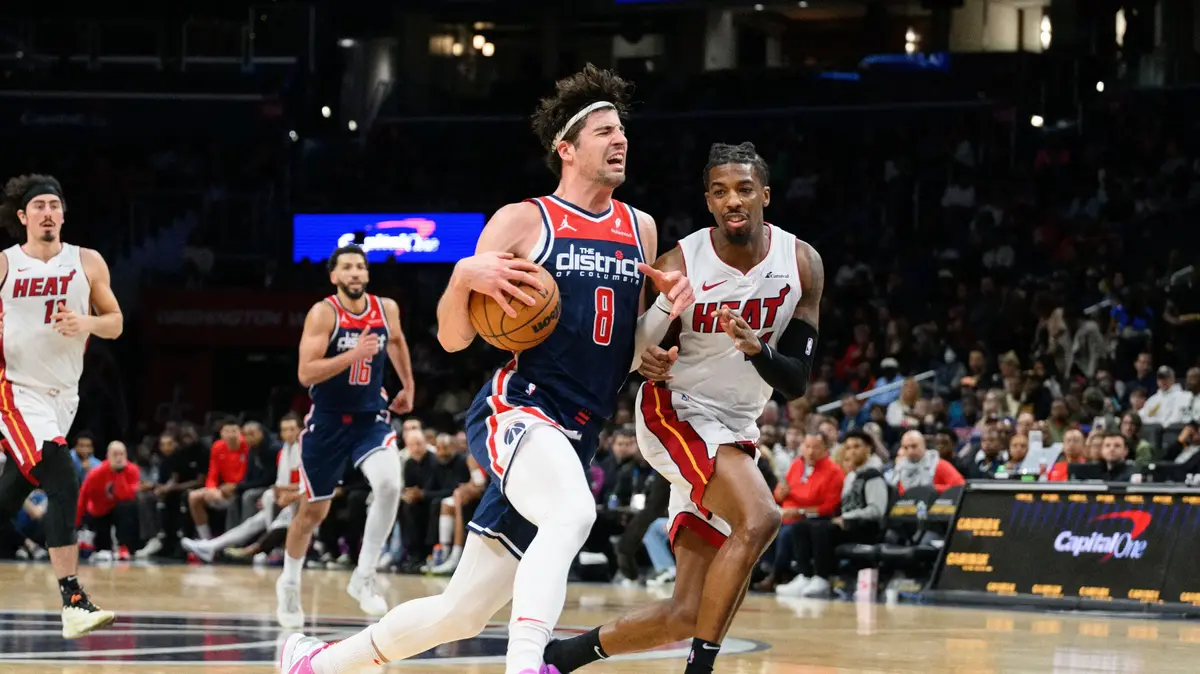Do new variants of covid-19 affect children?
2:25
(CNN) -
Experts say there is a tough race between covid-19 vaccines and a contagious variant that is rapidly spreading across the United States, threatening another dangerous wave.
Relaxing the constraints only complicates matters further.
"He's going to have a narrow margin," Dr. Ashish Jha, dean of the School of Public Health at Brown University, told CNN on Tuesday.
«We are vaccinating very well, that is the good news.
These variants are spreading pretty fast across the country, that's the bad news.
"For me, I think the vaccine should win," Jha added.
"Here's the big but: what Texas, Mississippi, and other states are doing to loosen up and undo mask mandates and act like everything is back to normal, that's definitely getting on the side of variance."
The governors of Texas and Mississippi are among at least a dozen state leaders who have eased restrictions this month.
Many attribute the improvement in covid-19 numbers and the increase in vaccines.
But in 15 states, new COVID-19 cases reported during the week ending Tuesday were at least 10% higher than a week ago, according to data from Johns Hopkins University.
In two of those states, Minnesota and Michigan, cases were more than 40% higher than the previous week, according to the data.
In general, new cases are still on a downward trend in the United States.
And experts say it takes more sustained data, for at least a couple of weeks, to identify a trend.
But with multiple worrisome variants circulating in the country, detecting early warning signs can be key to limiting the continued spread.
advertising
The United States creates a "perfect storm" scenario for the spread of variants
There are several variants that are of concern to experts at the moment.
They include two strains of coronavirus first detected in California that are now officially "variants of concern," according to the Centers for Disease Control and Prevention (CDC).
The variants may be about 20% more transmissible, the agency said, citing preliminary research.
Some treatments may also be less effective against the strains.
The CDC did not indicate that the vaccines would stop working against these variants.
But there is one that is "front and center," said Dr. Michael Osterholm, director of the Center for Infectious Disease Research and Policy at the University of Minnesota.
Variant B.1.1.7 is expected to be dominant in the US.
How are UK and South African variants different?
0:50
It is variant B.1.1.7, which was first detected in the UK and is now projected to become the dominant variant in the US in just a few weeks, according to the CDC.
"Our current models […] project that by late March-early April, B.1.1.7 will be the dominant variant," CDC Director Dr. Rochelle Walensky said Monday.
At least 4,690 cases of the variant have been reported in the U.S. And that probably doesn't represent the total number of cases nationwide, but only those that were found by scientists who tested positive samples.
The variant has been detected in at least 48 states, Puerto Rico and Washington.
Recent research suggests that the variant could be linked to an increased risk of dying from COVID-19.
But there is growing evidence that the variant poses very little threat to the efficacy of current vaccines.
"I think the next few weeks will focus on B.1.1.7 and the race we have between the vaccine and the variant," Osterholm said.
"By relaxing as we are now […] we are creating a perfect storm scenario for this virus to spread."
Different approaches to St. Patrick's Day
At a time that health officials say is critical in determining how the pandemic continues to unfold, St. Patrick's Day celebrations will look different in some parts of the country as well.
Some Irish bars in New Orleans announced that they will not open for the celebrations, citing concerns about the spread of Covid-19 and restrictions on business.
READ: Saint Patrick's Day celebrations are perfect for spreading the coronavirus.
Don't let this happen
Irish pub Finn McCool, located in the Mid-City area, wrote on Facebook Monday that crowds "would not allow us to comply with state and city rules."
"As much as we would love to be open and see everyone's faces, doing so would endanger not only our staff but also the community," the post read.
New Orleans officials further lowered restrictions last week, allowing retail stores, restaurants, salons and other businesses to increase their operating capacity to 75%.
Bars, breweries, gyms, and other venues can now operate at 50% capacity.
Savannah, Georgia, yeah it's wide open
In Georgia, meanwhile, Savannah Mayor Van Johnson said Tuesday the city is open and urged continued covid-19 mitigation efforts.
It's important to note that Savannah is wide open.
We have been wide open.
And the way we stay open is to demand the use of masks, "said the mayor, highlighting the importance of St. Patrick's Day celebrations for the local economy.
Despite the pandemic and a city-issued mask-wearing mandate, thousands of residents and tourists, some without masks and many without physical distancing, filled the city's streets and businesses over the weekend.
All states have vaccinated at least 10% of adults
The Savannah party and the Florida spring break crowd are examples of people's hunger to get back to normal, but experts say now is not the time to ditch safety precautions.
A more secure future is only a few months away, when a large part of the country is vaccinated.
More than 72 million Americans have received at least one dose of the COVID-19 vaccine so far, according to CDC data.
More than 39 million are fully vaccinated, that's about 11.8% of the US population.
Among the population 65 and older in the country, more than a third are fully vaccinated and almost two-thirds have received at least one dose of the COVID-19 vaccine.
Additionally, all states have fully vaccinated at least 10% of their adult population.
READ: CDC publishes long-awaited guide for people who are already fully vaccinated against covid-19
To boost vaccination numbers faster, many state leaders recently expanded eligibility guidelines, adding millions of Americans to the list of people who can get vaccinated.
President Joe Biden said he wants all American adults to be eligible for a vaccine by May 1, and some states have said they plan to get there earlier.
But while vaccines have raced, challenges remain, including vacillation and misinformation about vaccines.
The role of the church in vaccination
And the church can play a leadership role in increasing confidence in the COVID-19 vaccine, National Institutes of Health director Dr. Francis Collins said Tuesday.
"Many of those who could benefit the most, because they are at higher risk of serious and even fatal infections, are still wavering," Collins said, speaking from the Washington National Cathedral, where religious leaders gathered to help build confidence in the vaccine.
"Today, all of you are putting hope into action," he said.
“Hope to end the terrible suffering and loss of life from covid-19, hope that the economic devastation it has caused will end, hope that the vaccine can not only protect you, but also, if we do it together, to your family, your friends, your community, your nation, your whole world.
CNN's Deidre McPhillips, Jamiel Lynch, Gregory Lemos, Gisela Crespo and Michael Nedelman contributed to this report.
Covid-19 Saint Patrick's Day Coronavirus variants








